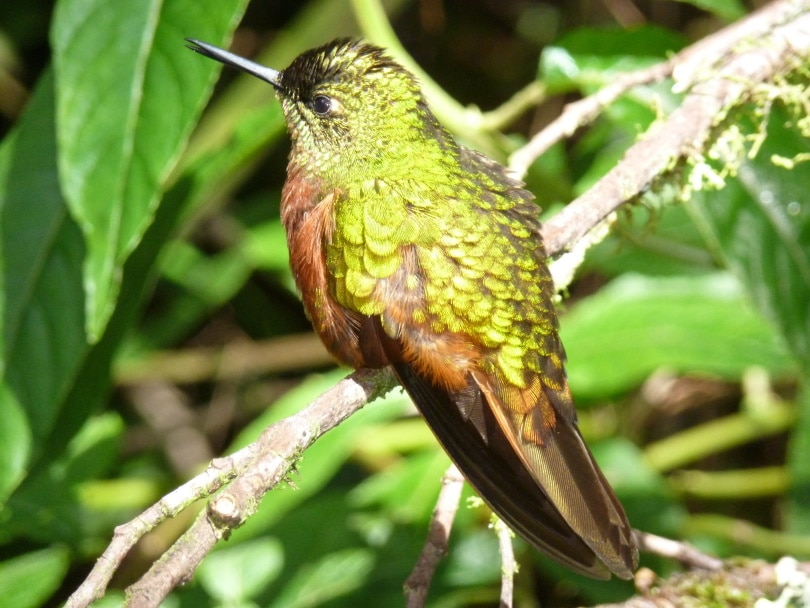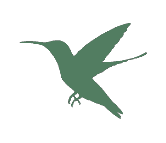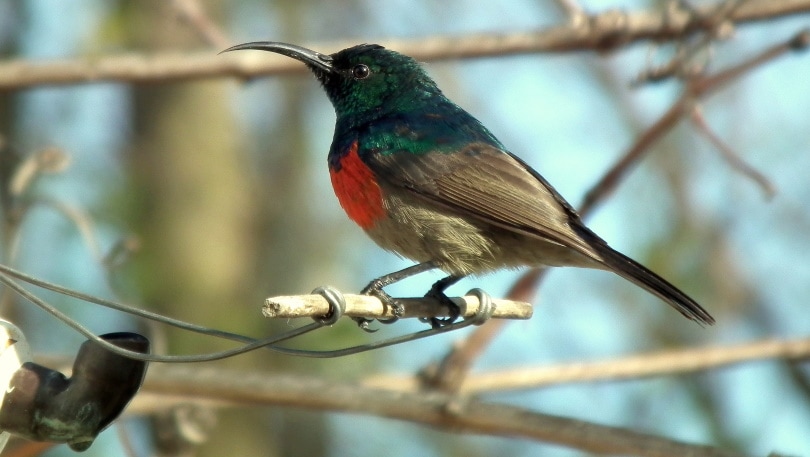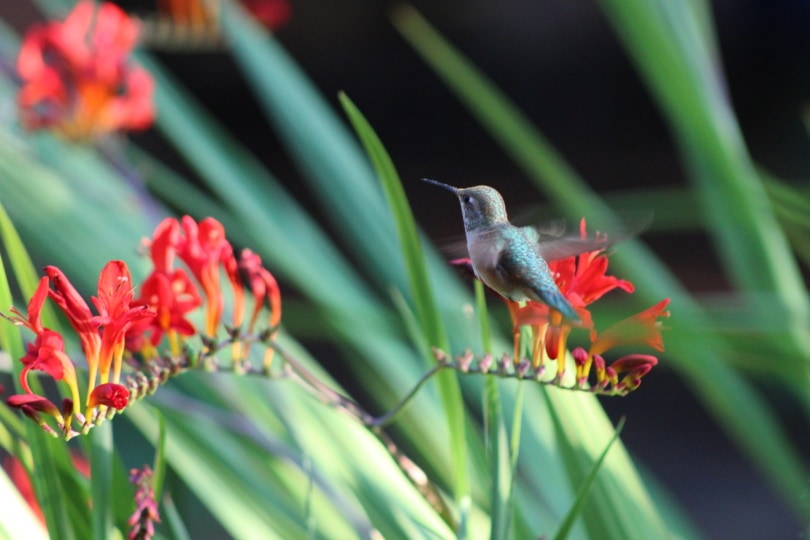10 Proven Ways to Attract Hummingbirds to Your Yard & Feeders
Last Updated on

When you know what you’re doing, you’ve already completed half the battle. After reading this guide, you can bring in all the hummingbirds in the area. Here’s to hoping that your yard turns into a hummingbird paradise! The old saying is: Build it and they will come. While that’s true to a degree, if you’re trying to get as many hummingbirds as possible, that’s just not going to get the job done.
To attract more than a few birds, you’ll need to do more than add a hummingbird feeder to your yard. We’ve done the hard work for you and found the 10 best ways to turn your yard into a hummingbird haven.

Proven Ways to Attract Hummingbirds
Once you’ve got a hummingbird feeder in your yard, you might think that you’ve done everything possible to attract hummingbirds. But the truth is that if you want to bring in more birds, you’ll need to do a little more. Follow these steps to attract even more birds to your yard.
1. Add More Feeders

Sometimes you’ll find that you have a hummingbird bully in your yard. While you’ll have at least one bird hanging around, it’ll keep you from having a yard full of them. When you add more feeders, put them in the same area.
This might sound counterintuitive, but it’s actually the best way to get more hummingbirds into your yard. The more feeders you have in one area, the less likely that a single bird can keep all the others away. If you spread them out, you’re tempting more bullies to stake out those feeders.
2. Keep Fresh Nectar

If you had the choice between a freshly cooked meal and one that had been sitting out for a few days, which one would you choose? Hummingbirds think the same way: They want fresh nectar, and if you want hummingbirds in your yard, that’s what you need to give them.
You need to replace the nectar at least once every 3-4 days, but the more often you change it, the more birds you’ll have around. We recommend changing it once every 2-3 days.
3. Leave the Webs

Hummingbirds love nectar, but they also love insects and making nests out of spiderwebs. It’s a win-win for the hummingbird. They get a nest-building material and can raid the web for insects. If you’re serious about attracting hummingbirds, don’t clear out the cobwebs in your yard.
4. Mist the Yard
Hummingbirds love cooling off by flying through a mist. If you have a mister running in your yard and a hummingbird feeder filled with fresh nectar, then it’s a hummingbird paradise. They will keep coming back if you have everything they love in one place!
5. Add a Snag Perch to Your Yard — the More, the Better

Once a hummingbird has flown through a mister a few dozen times, they need a perch to preen themselves on. Add a few snag perches to your yard, and they’ll never have a reason to leave!
Snag perches are even effective if you don’t add a mister, so if you don’t invest in the mister, the perches are still worth it.
6. Repaint Old Feeders — Magenta Is the Way to Go
Hummingbirds love the color red — and the deeper the red, the better. It grabs their attention and draws them in, and once they see the nectar, they’ll be sure to keep coming back. If your hummingbird feeder is showing its age, go ahead and repaint it — just make sure you paint it red!
7. Add Orange/Red Ribbons to Your Yard

Your hummingbird feeder doesn’t need to be the only thing to draw a hummingbird into your yard. Tie brightly colored ribbons around the area to draw them in. Ideal colors are red and orange but yellow can work too.
Once you’ve drawn them in, they’ll spot your feeder, and you’ve got yourself a hummingbird that’ll keep coming back for more.
8. Keep Them Flowers Blooming

Do you know why hummingbirds come to check out red feeders and ribbons? Because they think they’re flowers. So, why not present them with the real thing? Get brightly colored flowers and plant them around your yard. Put them in pots, in the ground, and wherever else the hummingbirds can see them.
More importantly, space out the plantings and get different varieties, so they bloom throughout the year. The longer you have flowers blooming, the longer you’ll have hummingbirds around.
9. Remove Old Blossoms From Flowers
An old gardener’s trick to keep flowers blooming longer is to remove old blossoms from flowers. It’s an old trick because it works, and the longer you keep flowers blooming in your yard, the longer you’ll have hummingbirds. So, get to removing those old blossoms!
10. Add New Plants

The more colors and options you have, the more likely you’ll attract hummingbirds. So, why not add a few new flowering plants to your yard? It’ll work better if they’re native plants, so the hummingbirds know what they’re looking at. Don’t get too fancy here — just keep the colors bright.

Final Thoughts
There are few birds as mesmerizing as the hummingbird. The way they flutter in place, with wings beating over 50 times a second, is part of their appeal. But unlike finches and other songbirds, attracting hummingbirds to your feeder requires a bit more work.
If you want to learn more about birds, check out some of our other posts:
- 5 Types of Falcon Species in the United States (with Pictures)
- 10 Proven Ways to Keep Bees OUT of Hummingbird Feeders
Featured Image Credit: Ondrej Prosicky, Shutterstock
Table of Contents
About the Author Robert Sparks
Robert’s obsession with all things optical started early in life, when his optician father would bring home prototypes for Robert to play with. Nowadays, Robert is dedicated to helping others find the right optics for their needs. His hobbies include astronomy, astrophysics, and model building. Originally from Newark, NJ, he resides in Santa Fe, New Mexico, where the nighttime skies are filled with glittering stars.
Related Articles:
How to Clean a Refractor Telescope: Step-by-Step Guide
How to Clean a Telescope Eyepiece: Step-by-Step Guide
How to Clean a Rifle Scope: 8 Expert Tips
Monocular vs Telescope: Differences Explained (With Pictures)
What Is a Monocular Used For? 8 Common Functions
How to Clean a Telescope Mirror: 8 Expert Tips
Brightfield vs Phase Contrast Microscopy: The Differences Explained
SkyCamHD Drone Review: Pros, Cons, FAQ, & Verdict
